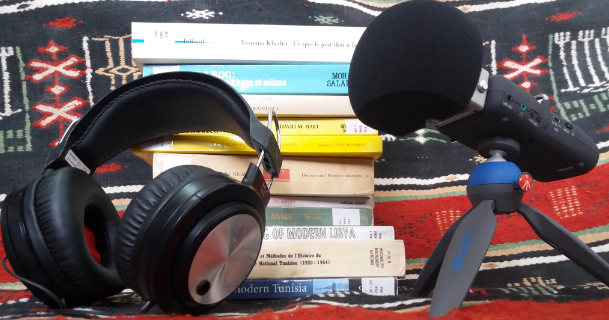
65.4K
Downloads
228
Episodes
Maghrib in Past & Present | Podcasts is a forum in which artists, writers, and scholars from North Africa, the United States, and beyond can present their ongoing and innovative research on and in the Maghrib. The podcasts are based on lectures, live performances, book talks, and interviews across the region. Aiming to project the scientific and cultural dynamism of research in and on North Africa into the classroom, we too hope to reach a wider audience across the globe.
Maghrib in Past & Present | Podcasts is a forum in which artists, writers, and scholars from North Africa, the United States, and beyond can present their ongoing and innovative research on and in the Maghrib. The podcasts are based on lectures, live performances, book talks, and interviews across the region. Aiming to project the scientific and cultural dynamism of research in and on North Africa into the classroom, we too hope to reach a wider audience across the globe.
Episodes
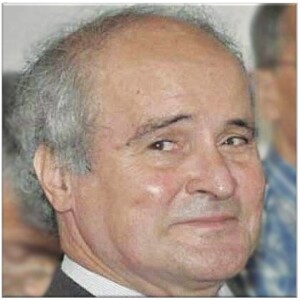
Thursday Sep 26, 2024
Entretien avec le sociologue et historien Hassan Remaoun
Thursday Sep 26, 2024
Thursday Sep 26, 2024
Episode 188: Entretien avec le sociologue et historien Hassan Remaoun
Le projet « Archives d’histoire orale de la production intellectuelle maghrébine » vise à documenter les trajectoires de vie, les formations intellectuelles et les luttes politiques de plusieurs générations de femmes et d'hommes nord-africains qui ont contribué à la création de la culture écrite et parlée dans cette partie du monde. Les entretiens sont réalisés avec des économistes, planificateurs, nutritionnistes, architectes, sociologues ruraux et d'autres chercheurs algériens, marocains et tunisiens. Il s'agit de la toute première initiative au Maghreb visant à créer des archives écrites, orales et filmées du travail intellectuel de générations qui se sont battues pour construire leurs sociétés. Elle innove en rassemblant ces voix et en les portant à la connaissance d'un large public afin de mieux faire connaître les premiers aux seconds et de démocratiser l'accès au savoir dans notre région.
Dans ce podcast, enregistré en février 2022, Habib Ayeb, professeur émérite de géographie à l’Université de Paris 8, s'entretient avec Pr. Hassan Remaoun, sociologue et historien, Professeur retraité de l’Université d’Oran 2 et chercheur associé au CRASC.
Équipe :
Habib Ayeb, Géographe
Max Ajl, Sociologue
Ernest Riva
Image : Leila Saadn
Post-production : Benoît Kalka
Veuillez trouver la vidéo et l’interview en pdf sur ce lien.
Nous remercions Dr. Tamara Turner, Ethnomusicologue et chercheur au Max Planck Institute for Human Development, Centre for History of Emotions, pour son interprétation de Sidna Ali du répertoire du Diwan.
Montage: Hayet Yebbous Bensaid, Bibliothécaire / Chargée de la diffusion des activités scientifiques (CEMA).
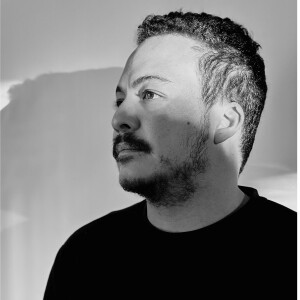
Thursday Sep 12, 2024
Thursday Sep 12, 2024
Episode 187: Artist talk with Nassim Azarzar on “All Things Flow” (2023), “Bonne Route” (2018-present), and other projects
Nassim Azarzar is an artist and graphic designer researching visual and popular imaginaries in Morocco by exploring their different forms, occurrences, and representation tools. In 2023, Azarzar took part in the project School of Casablanca, initiated by the KW Institute for Contemporary Art (Berlin) and ThinkArt (Casablanca), which draws from the legacy of the Casablanca Art School and its innovative pedagogical methods, modernist aesthetics, and exhibition strategies in 1960s Morocco. During the early 1960s, a group of artists, including Belkahia, Chabâa, Hamidi, Maraini, and Melehi, joined the Casablanca Art School faculty and restructured its curriculum. They also formed a collective called the School of Casablanca and shared similar aesthetic and conceptual concerns. Azarar’s installation, All Things Flow (2023), created a sonic and visual timeline of the Moroccan Modernist School of Casablanca group, inviting viewers into a meditative reflection on their history. Taking this work as a starting point for our conversation, in the podcast, we discuss various directions in Azarzar’s practice and potential parallels between his practice and the works of artists from the School of Casablanca.
Nassim Azarzar (@nazarzar) is an artist and graphic designer who lives and works between Paris and Rabat. For several years, he has been developing an ongoing project called «Bonne route» dealing with ornamental practices of trucks transporting goods between the port cities of Tangier, Casablanca, Agadir, and the Moroccan villages of the Atlas, and the Rif. Azarzar’s aesthetic research revolves around decorative arts, painting, drawing, sculpture, graphic design, and experimental cinema. Before joining QANAT (a collective of artists and researchers exploring the political and poetic dimensions of water) in 2019, Azarzar co-founded and initiated multiple creative endeavors, among them: Atelier Superplus (@atelier_superplus), a design studio operating between Paris, Bristol, and Tangier in 2014; Think Tanger (@thinktanger), a platform dedicated to the exploration of the city of Tangier and its extensions at the urban and visual levels in 2016; and Atelier Kissaria (@tanger.print.club) in 2017 focused on experimental printing practices.
This interview was led by Beya Othmani, CAORC/Andrew W. Mellon Fellowship in Modern Art History, and was recorded on January 7, 2024 via Zoom as part of the Modern Art in the Maghrib series. This is part of a larger Council of American Overseas Research Centers program organized by the Centre d'Études Maghrébines à Tunis (CEMAT) and financed by the Andrew Mellon Foundation that seeks to collaborate with local institutions for a greater awareness of art historical research in north Africa.
We thank our friend Ignacio Villalón for his guitar performance for the introduction and conclusion of this podcast.
Production and editing: Lena Krause, AIMS Resident Fellow at the Centre d’Études Maghrébines à Tunis (CEMAT).
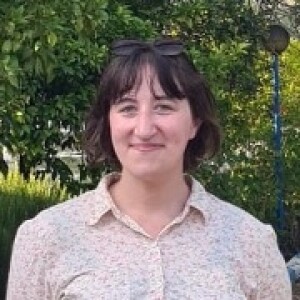
Wednesday Jul 31, 2024
Old Marvels, New Approaches: The Revitalization of Balāgha in Moroccan Literary Studies
Wednesday Jul 31, 2024
Wednesday Jul 31, 2024
Episode 186: Old Marvels, New Approaches: The Revitalization of Balāgha in Moroccan Literary Studies
The science of balāgha is an Arabic scholarly discipline dealing with poetics and rhetoric, one that dates back to at least the 10th century C.E. Scholars of balāgha have long studied how poets convey intellectual and emotional content to listeners by using tools such as vivid imagery, sound play, and stylistic variation. Meanwhile, the relationship between Arabic balāgha and the Greek rhetorical tradition beginning with Aristotle has always been complicated, with some thinkers seeing the Greek emphasis on persuasive oratory as a welcome addition to Arabic-Islamic ideas about the power of language and speech, and others attempting to defend the Arabic language sciences against external influence.
In the 19th and 20th centuries, balāgha was often viewed by progressive writers and thinkers as anachronistic. Its study thus tended to be confined to traditional Islamic institutions and seen as relevant only to particular “premodern” Arabic-Islamic texts. But recent decades have seen a renewed dedication to the continued vitality and value of a type of balāgha study called “The New Balāgha” that draws on Greek, Arabic, and hybrid conceptual tools. For those involved in this movement, balāgha comes to name a set of ideas about how people connect through language: how they become open to new ideas, empathetic to the struggles of those around them, and sensitive to the powers of linguistic beauty and subtlety. This scholarly movement has come to be particularly associated with Morocco, and especially with Abdelmalek Essaadi University in Tetouan, where its best-known practitioner and advocate, Dr. Mohamed Mechbal, teaches.
Betty Rosen is a final-year PhD candidate in the Department of Middle Eastern Languages and Cultures and the Designated Emphasis Program in Critical Theory at the University of California, Berkeley. Originally from Cleveland, OH, she earned her A.B. in Comparative Literature Magna Cum Laude from Harvard College in 2012, as well as completing an MA in Arabic Literature at SOAS (University of London) in 2013. She was also a CASA Fellow at the American University of Cairo during the 2017-18 academic year. Betty specializes in Arabic and Hebrew poetics and theories of language, both medieval and modern. Her dissertation, entitled Language Marvels: Al-Badī‘ In and Beyond Arabic-Islamic Poetics, focuses primarily on the conceptions of al-badī‘—the “marvelous creativity of language”—developed in writings by Muslim and Jewish Arabophone writers in Egypt during the Mamluk Period (13th-15th centuries). The dissertation also asks how certain 19th-century thinkers mobilized Mamluk-era ideas about language, poetics, and creativity to envision alternative forms of Arab “modernity.” Betty’s research interests also extend into the 20th and 21st centuries, particularly the ways in which contemporary Arab scholars mobilize and reimagine older ideas about the Arabic linguistic and poetic tradition. In her free time, she plays viola, writes creatively, and works on an ongoing Arabic-to-English fiction translation project.
This episode was recorded on June 22, 2023 at the Tangier American Legation Institute for Moroccan Studies (TALIM).
Recorded and edited by: Abdelbaar Mounadi Idrissi, Outreach Director, TALIM
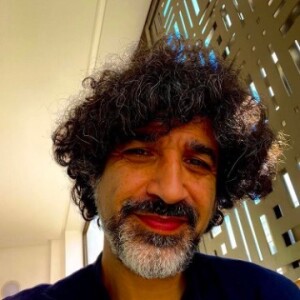
Thursday Jul 25, 2024
Agricultural Modernization in the MENA Region
Thursday Jul 25, 2024
Thursday Jul 25, 2024
Episode 185: Agricultural Modernization in the MENA Region
The agrarian and food crisis in the Middle East and North Africa (MENA) have re-emerged vigorously to the attention of global development agencies and governments in coincidence with the Russia-Ukraine war. The food crisis has been interpreted through a number of tropes, including Malthusian, environmentally determinist, security and development economics approaches. Within the dominant mainstream discourse, the MENA region is often depicted as a homogenous geographical area characterized by dryness, infertile lands and poor water resources. How did imperialism, colonialism and the Cold War influence the MENA food systems? What were the effects of agrarian modernizations, trade liberalization and neoliberalism on the agricultural systems in the region? These are some questions that this presentation tries to answer using a geographical and historical-comparative analysis, through a food regimes lens. Understanding contemporary social relations dynamics cannot be limited to the recent period. Agriculture and food in the MENA region are anchored in the history of power relations ruled by flows of capital and the shaping of ecological transformations during the longue durée of capitalism and its corresponding modes of control and regulation.
Giuliano Martiniello is Associate Professor of Political Science and Political Economy at the Faculy of Law, Political and Social Sciences, Université Internationale de Rabat and Adjunct Associate Professor at the Faculty of Agricultural and Food Sciences, American University of Beirut. Prior to joining UIR, he was Assistant Professor at the American University of Beirut (2015-2020), Research Fellow at the Makerere Institute of Social Research, Makerere University (2011-2015), and Post-Doctoral Research Fellow at the Centre for Civil Society, University of KwaZulu-Natal (2012-2013). He got his PhD in Politics at the School of Politics and International Studies of the University of Leeds (2011). He is broadly interested in the political economy, political sociology and political ecology of agrarian and environmental change. His research interests include land regimes, food and farming systems, large-scale land enclosures and contract farming, conservation and deforestation, rural social conflicts and agrarian movements in Africa and the Middle East. He has published articles in a number of top-ranking international journals such as World Development, Journal of Peasant Studies, Journal of Agrarian Change, Geoforum, Land Use Policy, Food Secuirty, Globalizations, Agrarian South: a Journal of Political Economy; Third World Quarterly, Review of African Political Economy, among others. He is Contributing Editor of the Review of African Political Economy and Associate Editor of Agrarian South: A Journal of Political Economy. He is co-editor of the book Uganda: The Dynamics of Neoliberal Transformation, London, Zed Books (2018).
This episode is part of the CAORC and Carnegie Corporation of New York program "The Maghrib From the Peripheries: Property, Natural Resources and Social Actors in the Maghrib". It was recorded via zoom on the 19th of October, 2023 by the American Institute for Maghrib Studies (AIMS).
Edited by Hayet Yebbous Bensaid, Librarian, Outreach Coordinator, Content Curator (CEMA).

Wednesday Jul 10, 2024
Activating Ruins and Performing Power in Colonial Carthage
Wednesday Jul 10, 2024
Wednesday Jul 10, 2024
Episode 184: Activating Ruins and Performing Power in Colonial Carthage
In the decades leading up to, and during, the French Protectorate (1881–1956), the excavation of ruins became a critical component of a colonialist modernizing practice that saw North Africa’s ancient imperial and early Christian pasts as tangible justification for European dominance. Sites were not only unearthed, but their ruins were consolidated, restored, activated, and fabricated as backdrops for highly staged and politically significant events, and thus the enactment of France’s “civilizing mission.”
This conversation considers several case studies that illustrate the exploitation of ruins in the operation of the colonialist imagination and power relationships. Based on archival and on-site research, it explores the use of Carthage’s Roman theatre by the Carthage Institute for a series of drama festivals in the early 1900s, as well as the Catholic Church’s 1930 International Eucharistic Congress, elements of which were scattered across the ruin-rich city’s many sites. These events, which aimed to add legitimacy to the French and Catholic presence by emphasizing continuity and revival, involved excavation and restoration work, as well as the participation of set designers and artists who took considerable liberties in their contributions to the events’ mélange of site-specific history and ephemeral fantasy. Together these cases illuminate the intersection of archaeology, politics, and architecture, as well as the academy, the colonialist Church and state, and several creative fields in bringing ruins from the orientalist imagination to the real world of French-occupied Tunisia.
Daniel E. Coslett is an assistant professor of architectural history at Drexel University (Philadelphia, USA) and was a 2005–06 Fulbright student researcher in Tunisia. A scholar of colonial and postcolonial built environments in North Africa and the wider Mediterranean region, his work addresses intersections of architecture, heritage, archaeology, and tourism. Coslett has published several edited volumes and book chapters on colonial architecture, global built environments, and heritage, as well as articles in publications including the Journal of North African Studies, the International Journal of Islamic Architecture, and Public Historian. He is an active member of the Society of Architectural Historians and an assistant editor for the International Journal of Islamic Architecture.
This episode was recorded on the 3rd of august, 2023 by the Centre d'Études Maghrébines à Tunis (CEMAT).
Posted by Hayet Lansari, Librarian, Outreach Coordinator, Content Curator (CEMA).
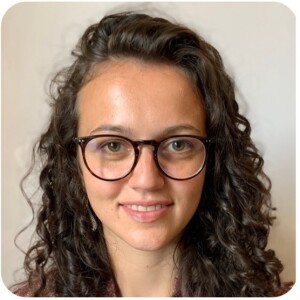
Thursday Jun 27, 2024
Être étranger dans l'Algérie indépendante, 1962-1979
Thursday Jun 27, 2024
Thursday Jun 27, 2024
Dans ce podcast, Laura Orban, doctorante en histoire, évoque la question de l’expérience d’extranéité en Algérie de 1962 à la fin des années 1970. À l’Indépendance, tandis qu’une majorité des Français d’Algérie quitte leur terre natale ou de vie pour la métropole, d’autres choisissent de rester. Ils sont rejoints des semaines, des mois ou des années plus tard par un ensemble hétérogène de personnes venues de tous les continents pour s’installer en Algérie nouvelle. Ils sont coopérants, militants révolutionnaires en exil, conjoints de citoyens algériens, entre autres. Comment se définit et par quoi se caractérise l’expérience sociale, politique et administrative de ces étrangers en Algérie dans les années 1960 et 1970 ? Qui se perçoit et est perçu comme étranger par les Algériens ainsi que par les autres étrangers ? Ce podcast se propose de raconter une histoire post-coloniale et transnationale à partir des trajectoires des individus qui l’habitent.
Laura Orban est doctorante en histoire à l’Université Paris 8 Vincennes – Saint-Denis, sous la direction de Malika Rahal et Youssef El Chazli. Elle est membre de l’Institut d’Histoire du Temps Présent (IHTP) et membre associée du Laboratoire Théorie du politique (Cresppa-LabToP). Elle est également chargée de cours à l’Université Paris 8.
Cet épisode a été enregistré le 04 mars 2024 par le Centre d'Études Maghrébines en Algérie (CEMA).
Dr. Amar Mohand Amer, historien et chercheur au CRASC, a présidé cet évènement et a modéré le débat.
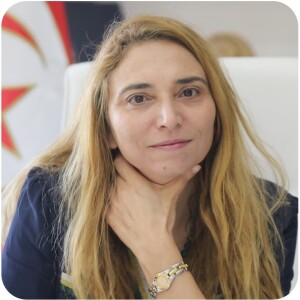
Thursday Apr 18, 2024
Le cinéma Tunisien post-révolutionnaire : une vue d’ensemble, un regard intérieur
Thursday Apr 18, 2024
Thursday Apr 18, 2024
Episode 182: Le cinéma Tunisien post-révolutionnaire : une vue d’ensemble, un regard intérieur
Dans ce podcast, Chiraz Latiri, ancienne Ministre des Affaires Culturelles en Tunisie, directrice du Centre National du Cinéma et de l’Image (CNCI) entre 2017 et 2019, et professeure-chercheure en Informatique à l’Université de la Manouba, fait le bilan de l’évolution de l’industrie du cinéma Tunisien depuis la révolution 2011.
Forte de son engagement dans le service public en faveur de l’enseignement, de l’art et de la culture en Tunisie, Latiri évoque les succès et obstacles qui marquent l’industrie, tant en termes de liberté d’expression, de reconnaissance aux festivals internationaux, de formation, de financement, de distribution, d’administration, de réforme, que de partenariats internationaux.
Elle nous transmet sa passion, ses aspirations et ses inquiétudes pour l’avenir de ce secteur et des nouvelles générations de cinéastes tunisiens.
Cet episode a été enregistré via Zoom le 01 juin 2023 par le Centre d'Études Maghrébines à Tunis (CEMAT).
Posté par: Hayet Yebbous Bensaid, Bibliothécaire / Chargée de la diffusion des activités scientifiques (CEMA).
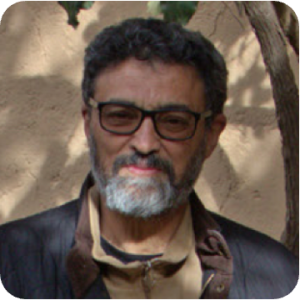
Thursday Mar 14, 2024
Entretien avec le sociologue ruraliste Mohamed Mehdi
Thursday Mar 14, 2024
Thursday Mar 14, 2024
Episode 181: Entretien avec le sociologue ruraliste Mohamed Mehdi
Le projet « Archives d’histoire orale de la production intellectuelle maghrébine » vise à documenter les trajectoires de vie, les formations intellectuelles et les luttes politiques de plusieurs générations de femmes et d'hommes nord-africains qui ont contribué à la création de la culture écrite et parlée dans cette partie du monde. Les entretiens sont réalisés avec des économistes, planificateurs, nutritionnistes, architectes, sociologues ruraux et d'autres chercheurs algériens, marocains et tunisiens. Il s'agit de la toute première initiative au Maghreb visant à créer des archives écrites, orales et filmées du travail intellectuel de générations qui se sont battues pour construire leurs sociétés. Elle innove en rassemblant ces voix et en les portant à la connaissance d'un large public afin de mieux faire connaître les premiers aux seconds et de démocratiser l'accès au savoir dans notre région.
Dans ce podcast, Habib Ayeb, professeur émérite de géographie à l’Université de Paris 8, s'entretient avec Mohamed Mehdi, sociologue ruraliste marocain, ex. Professeur à l'École Supérieure d'Agriculture Meknès - Maroc.
Cet épisode a été enregistré au Maroc en février 2020.
Équipe :
Habib Ayeb, Géographe, Univerité de Paris 8
Max Ajl, Sociologue, chercheur post-doc à l’Université de Ghent et au Merian Centre for Advanced Studies in the Maghreb
Image : Ernest Riva
Post-production : Ernest Riva
Veuillez trouver la vidéo, l’interview en pdf ainsi que les images associées sur ce lien.
Nous remercions Dr. Tamara Turner, Ethnomusicologue et chercheur au Max Planck Institute for Human Development, Centre for History of Emotions, pour son interprétation de Sidna Ali du répertoire du Diwan
Posté par: Hayet Yebbous Bensaid, Bibliothécaire / Chargée de la diffusion des activités scientifiques (CEMA).
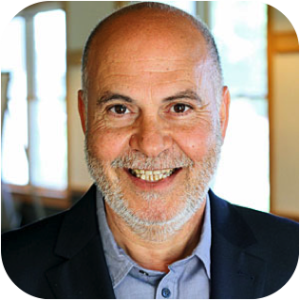
Thursday Feb 15, 2024
A Short History of the Tunisian Film Industry
Thursday Feb 15, 2024
Thursday Feb 15, 2024
Episode 180: A Short History of the Tunisian Film Industry
One of the earliest decisions of the new Tunisian government after Independence was to create the Secretary of State for Cultural Affairs and Information and with it, allot a budget for cinema. The meaning of “cinema” as both art and industry has morphed and been subject for debate continuously since then, especially as it constituted a mode for defining a national identity and for Tunisia to integrate into the complex networks of the international film scene.
Professor Mounir Khélifa, the AIMS History of Tunisian Film Fellow, discusses his research, delving into these contours and dynamics and outlining the foundations of a structure that in many ways still impacts the industry today. His findings are presented in detail in the “History of Tunisian Cinema” report.
This episode was recorded on the 23rd of June, 2023 by the Centre d'Études Maghrébines à Tunis (CEMAT)
Other podcasts by Mounir Khalifa:
Episode 149: Roman Dougga (Thougga): Heritage Preservation in an Antique City.
Episode 67: William Wordsworth and the French Revolution.
Episode 51: Why William Wordsworth is needed today.
Posted by Hayet Lansari, Librarian, Outreach Coordinator, Content Curator (CEMA).
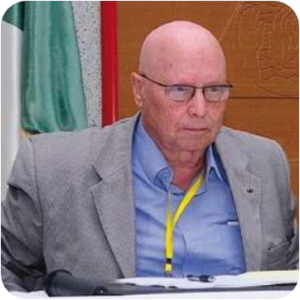
Thursday Feb 08, 2024
Aux origines du MALG. Témoignage d’un compagnon de Boussouf
Thursday Feb 08, 2024
Thursday Feb 08, 2024
Rares sont les « Malgaches », les membres du fameux MALG (Ministère de l’Armement et des Liaisons générales) créé en 1960 par Abdelhafid Boussouf, qui ont livré leur témoignage écrit. Abderrahmane Berrouane, dit Saphar, est de ceux-là. Il lui aura sans doute fallu un certain courage pour oser écrire à la première personne et tenter de se défaire des réflexes de silence et de secret associés à ce groupe réputé pour son opacité.
C’est avec une réelle sincérité que l’auteur entreprend de raconter son parcours : enfance à Relizane, révolte devant l’injustice coloniale, études de Sciences Politiques en France (Toulouse), interrompues en 1956 à la suite de l’appel à la grève générale pour rejoindre le maquis. Cette année-là, il gagne donc le Maroc et rencontre le charismatique Boussouf, dit Si Mabrouk. Il fera partie de la première promotion d’opérateurs radio, baptisée « promotion Zabana », effectuera plusieurs missions, au Maroc et en Tunisie, avant de diriger, la DVCR (Direction de la Vigilance et du Contre-Renseignement) et ce jusqu’à l’Indépendance.
Abderrahmane Berrouane décrit chronologiquement la manière dont furent créés les services de renseignement algériens dans la guerre des ondes de l’information menée contre les Français. C’est l’occasion pour lui de convoquer des souvenirs très personnels qui ne manqueront pas de marquer le lecteur : ainsi de sa rencontre avec Si Mabrouk, saisissante ; du récit, très vivant, du recrutement en wilaya V et des conditions du stage de la promotion Zabana ; ou même de l’évocation de son désarroi et celui de ses collègues, à la Base Didouche, en Libye, lors de la crise GPRA/État-Major en 1962.
Grâce à ces détails et anecdotes, qui situent la guerre à son échelle humaine, ce témoignage contribue à donner un nouvel éclairage sur les arcanes du MALG et à mieux comprendre les ressorts de cette organisation.
Abderrahmane Berrouane est né à Relizane en 1929. En 1956, il rejoint la wilaya V, et en 1958, Boussouf le nomme à la tête de la Direction de la Vigilance et du Contre-Renseignement.
En 1962, il est chargé de l’organisation d’agences d’Air Algérie en Europe. En 1971, il dirige l’Agence touristique algérienne (ATA), puis, en 1976, l’Organisme national des congrès et Conférences (ONCC). En 1978, il devient conseiller au ministére du Tourisme jusqu’à la retraite.
(Extrait de la 4eme de couverture de son ouvrage).
Abderrahmane Berrouane nous a quitté le 30 mai 2019.
Cet épisode, enregistré le 04 octobre 2015, a été co-organisé par le Centre d'Études Maghrébines en Algérie (CEMA) et le Centre de Recherche en Anthropologie Sociale et Culturelle (CRASC) et s’inscrit dans le cadre du cycle des conférences « Témoignages sur la guerre de libération nationale ».
Mr. Abdallah Belabbes, chercheur au CRASC, a présidé cette rencontre et a modéré le débat.
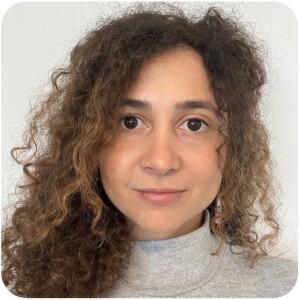
Thursday Jan 25, 2024
Les évolutions post-2011 du cinéma tunisien
Thursday Jan 25, 2024
Thursday Jan 25, 2024
Episode 178: Les évolutions post-2011 du cinéma tunisien
En 2023, le Centre d’Études Maghrébines à Tunis a lancé une recherche sur le cinéma tunisien contemporain en tant qu’art et industrie. Prenant en compte la création d’un cinéma d’Etat après l’indépendance ainsi que des impacts de la révolution de 2011, ce projet a analysé des des acteurs/actrices et des institutions, des tendances thématiques et artistiques, des événements et espaces, et des succès et challenges qu’a vécu l’industrie depuis ses débuts.
Dans ce podcast, Kenza Ben Azouz, chercheuse qui s’intéresse aux évolutions du domaine cinématographique en contexte tunisien depuis 2011, discute son approche et ses découvertes. Elle essayé de comprendre comment traiter de la fluidité de la définition du cinéma en général, et du cinéma tunisien en particulier ? Quel langage utilisent des membres de l’industrie en parlant du cinéma ?
Pour visualiser le processus complexe de la réalisation cinématographique en Tunisie, elle examine la production de sa conception à sa réception afin de montrer les opportunités et les défis des cinéastes à tous les niveaux. Plus globalement, sa recherche évalue la place du cinéma dans la société tunisienne, et la place du film tunisien sur la scène internationale.
Les résultats de la recherche sont présentés dans leur intégralité dans le rapport final intitulé « Contemporary Tunisian Cinema. »
Kenza Ben Azouz a été la 2022 AIMS Film Fellow. Elle est chercheuse en anthropologie. Avant ce projet, elle a travaillé avec plusieurs associations de défense des droits de l’homme et du développement (le Haut-Commissariat des Nations unies aux droits de l'homme, HCDH ; Mercy Corps ; Human Rights Watch ; et l’Organisation de coopération et de développement économiques, OCDE) dans l’Afrique de l’Ouest, le Maghreb, et le Mashreq. Son travail se concentre sur la violence des hommes contre les femmes, le racisme institutionnel, et les challenges du développement structurel. Kenza est diplômée en sciences politiques et philosophie de l’Université de McGill et a reçu son master en anthropologie sociale de développement du School of Oriental and African Studies (SOAS). Elle a été lauréate de la bourse Allan & Nesta Ferguson Scholarship for African Students en 2018 et de la bourse Finberg Fellowship at Human Rights Watch en 2022. Elle parle arabe, anglais, et français.
Cet épisode a été enregistré le 08 juin 2023 via Zoom, par le Centre d'Études Maghrébines à Tunis (CEMAT)
Posté par: Hayet Yebbous Bensaid, Bibliothécaire / Chargée de la diffusion des activités scientifiques (CEMA).
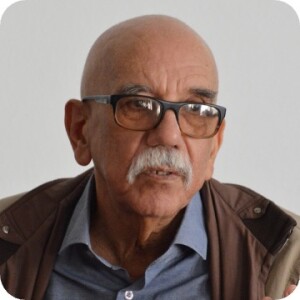
Thursday Jan 18, 2024
Thursday Jan 18, 2024
Episode 177: Rencontre avec Abdelkrim Elaidi autour de son ouvrage: Étudiants volontaires et paysans. Algérie 1970
Dans le présent ouvrage, c’est avec la rigueur du sociologue spécialiste du monde rural que Abdelkrim Elaidi revient sur des expériences qu'il a connues - parfois de près - pour nous proposer une solide étude qui nous place au cœur de la « Révolution agraire », lancée en 1971 en Algérie. Il les aborde par le biais de deux phénomènes distincts : celui du volontariat étudiant d'une part, celui des Unions paysannes de l'autre.
Le style est scientifique et rigoureux. L'auteur est sans complaisance avec les évaluations chiffrées, comme il l'est avec des questions délicates : c'est le cas lorsqu'il s'interroge sur le degré de spontanéité que l’on peut, ou pas, prêter au volontariat, et lorsqu'il se demande comment penser le lien entre d'une part la répression contre l'Union nationale des étudiants algériens (UNEA), qui aboutit à la dissolution de l’organisation en 1971, et d'autre part la création du Volontariat de la Révolution agraire.
En proposant la sociologie historique d'un passé récent, Abdelkrim Elaidi fait œuvre d'historien, comme nous le rappelle Pierre Bourdieu qui soulignait la proximité des deux disciplines. En cela, il enrichit notre connaissance du passé, en même temps qu'il nous fait réfléchir à des questions essentielles pour le présent.
Abdelkrim Elaidi est professeur de l'Enseignement supérieur en sociologie à l'Université d'Oran 2 - Mohamed Ben Ahmed. Il a mené des recherches scientifiques en milieu rural et a dirigé des études et des projets de recherche (CRASC, CREAD, projet PNR) sur la jeunesse, les dynamiques d'intégration et de marginalisation, le genre, la culture et le lien social en recomposition.
(Extrait de la 4ème de couverture du livre)
Cet épisode a été enregistré le 14 décembre 2023 par le Centre d'Études Maghrébines en Algérie (CEMA).
Pr. Malika Rahal, historienne à l’Institut d’histoire du temps présent à Paris, a présidé cette évènement et a modéré le débat.
La rencontre était suivie d’une vente-dédicace de l’ouvrage.
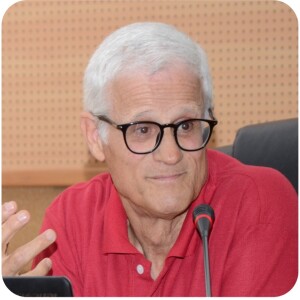
Thursday Jan 04, 2024
Maroc: Une économie sous plafond de verre
Thursday Jan 04, 2024
Thursday Jan 04, 2024
Episode 176: Maroc: Une économie sous plafond de verre
La crise de l’eau au Maroc a pour origine certes des contraintes géo-climatiques, mais aussi, et peut-être surtout des choix de politique agricole et de politique de l’eau, qui ont généré des modèles de production et de consommation peu compatibles avec les réalités hydriques du pays. Pour faire face aux défis présents et à venir, il s’agit de repenser les choix fondamentaux, notamment au niveau de l’agriculture qui représente 87% de la consommation de l’eau disponible, en accordant désormais la priorité à deux critères déterminants : la souveraineté alimentaire et la préservation des ressources naturelles.
Najib Akesbi est né à Fès, au Maroc, le 5 août 1952. Il est économiste, titulaire d’un doctorat d’État es sciences économiques de l’Université Paris-Dauphine, ainsi que du diplôme de l’Institut d’Etudes Politiques de Paris (Section économique et financière).
Il est enseignant-chercheur, professeur des universités. Il anime divers enseignements et séminaires, sur les Politiques économiques et financières, les politiques agricoles et les relations euro-méditerranéennes. Ses activités de recherche dans les domaines de l’économie de développement, et des politiques publiques ont abouti à plus d’une centaine de publications à comité de lecture.
Najib Akesbi est membre de plusieurs associations et réseaux de recherche, au Maroc et à l’étranger. Par ailleurs, il est militant dans diverses organisations de la Société civile et de l’action citoyenne.
Cet épisode a été enregistré le 06 mars 2023 via zoom par le Centre d'Études Maghrébines à Tunis (CEMAT) et s’inscrit dans le cadre du programme CAORC et Carnegie Corporation of New York « Le Maghreb vu des périphéries : propriété, ressources naturelles et acteurs sociaux au Maghreb ».
Pour consulter les diaporamas de associés à ce podcast, veuillez visiter notre site web: www.themaghribpodcast.com
Nous remercions Dr. Jonathan Glasser, anthropologue culturel au College of William & Mary, pour son istikhbar in sika à l'alto pour l'introduction et la conclusion de ce podcast.
Montage et diffusion: Hayet Yebbous Bensaid, Bibliothécaire / Chargée de la diffusion des activités scientifiques (CEMA).

Thursday Dec 14, 2023
Tunisian Librarians and the Book History of African Decolonization, 1956-1988
Thursday Dec 14, 2023
Thursday Dec 14, 2023
After Tunisian independence in 1956, librarians confronted new questions about national culture, cultural development, and ongoing cultural decolonization after political independence. The Bibliothèque Nationale de Tunisie took on new missions in national bibliography and in the cataloguing of Tunisian and African publications; librarians organized their profession and struggled over its leadership; and scholars and students at Tunisia’s schools for information sciences conducted research in book history and in the sociology of literature. Their projects joined with similar efforts by librarians, book historians, and bibliographers across Africa to work through the history of colonization by France and the new needs of national independence in newly-independent nation-states. These Maghribi and African library histories show how decolonization reshaped book history in the twentieth century, as well as how librarians contributed to the invention of new ideas and practices of decolonization and development through books.
In this episode, Alexander Baert Young, Ph.D. candidate in history at Johns Hopkins University and 2023 AIMS/CEMAT fellow, presents research he conducted in Tunisia during April-May 2023 at the Bibliothèque Nationale de Tunisie, the Archives Nationales de Tunisie, the Institut de Presse et des Sciences de l’Information, the Institut Supérieur de Documentation, the Fondation Temimi pour la Recherche Scientifique et l’Information, the CEMAT library, and Tunis’ used book sellers.
Alexander Baert Young is a historian whose work connects African history, French history, and book history. As a PhD candidate in history at Johns Hopkins University, he is researching and writing his dissertation on African print culture in French and the twentieth-century "book revolution." In Tunis during April-May 2023, with support from AIMS and CEMAT, he conducted primary source research at the Bibliothèque Nationale de Tunisie, the Archives Nationales de Tunisie, the Institut de Presse et des Sciences de l'Information, the Institut Supérieur de Documentation, the Fondation Temimi pour la Recherche Scientifique et l'Information, the CEMAT library, and Tunis' many used book sellers. This research in Tunisia will contribute to a multi-site project that aims to tell the connected stories of African publishers, librarians, bibliographers, cultural development experts, and media theorists in French-language contexts across Tunisia, Morocco, Cameroon, Senegal, and France. These "book people" theorized and practiced print culture as a battleground in post-independence struggles for "cultural decolonization" and "cultural development," and their stories can inform today's conversations about new media and decolonization.
This episode was recorded via Zoom on the 23rd of August, 2023 by the Centre d'Études Maghrébines à Tunis (CEMAT)
To see related slides, please visite our website: www.themaghribpodcast.com
We thank Dr. Tamara Turner, Ethnomusicologist and Research Fellow at the Max Planck Institute for Human Development, Center for the History of Emotions, for her interpretation of Sidna Ali, from the diwan repertoir.
Posted by Hayet Lansari, Librarian, Outreach Coordinator, Content Curator (CEMA).

Thursday Nov 30, 2023
Thursday Nov 30, 2023
Episode 174: L'édification de l'état social algérien à l'indépendance : Émigration et emploi (1962-1964)
Cet épisode a été enregistré le 11 octobre 2023 par le Centre d'Études Maghrébines en Algérie (CEMA).
Dr. Amar Mohand Amar, historien et chercheur au CRASC, a présidé cette rencontre et a modéré le débat.
Réalisation et montage: Hayet Yebbous Bensaid, Bibliothécaire / Chargée de la diffusion des activités scientifiques (CEMA).
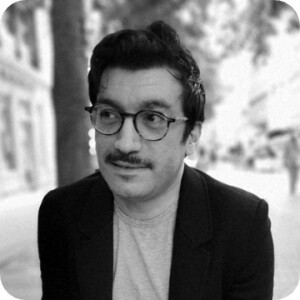
Thursday Nov 16, 2023
The Casablanca Art School, Platforms and Patterns for a Postcolonial Avant-Garde
Thursday Nov 16, 2023
Thursday Nov 16, 2023
Episode 173: The Casablanca Art School, Platforms and Patterns for a Postcolonial Avant-Garde
This podcast about the Casablanca Art School’s development in the postcolonial era of 1960-1970s, Morocco, was recorded during the time of the exhibition at Tate St-Ives, 27 May 2023-14 January 2024. It brings together for the first time a selection of 21 artists-activists who significantly participated in the various artistic manifestations and platforms, catalyzed by the Casablanca Art School (M. Melehi, F. Belkahia, M. Chabâa, M. Hamidi, M. Ataallah, M. Agueznay, M. Labied, H. Miloudi, F. Bellamine, Chaïbia...). Their multifaceted geometric abstraction itself working as a platform drawing a much bigger territory of action: critical journals and magazines, interior and graphic design, collecting and studying Afro-Berber popular arts, mural painting, street exhibitions… Eventually the CAS proves to be not only one of the most important postcolonial art schools of the Global South but also a social interface, for rethinking public space (through the arts) in Morocco. The exhibition referred to is curated by Morad Montazami and Madeleine de Colnet for Zamân Books & Curating.
Morad Montazami is an art historian, a publisher and a curator. After serving at Tate Modern (London) between 2014-2019 as curator « Middle East and North Africa », he developed the publishing and curatorial platform Zamân Books & Curating to explore Arab, African and Asian modernities. He published numerous essays on artists such as Zineb Sedira, Walid Raad, Latif Al-Ani, Faouzi Laatiris, Michael Rakowitz, Mehdi Moutashar, Behjat Sadr, etc. and curated among other projects Bagdad Mon Amour, Institut des cultures d’Islam, Paris, 2018; New Waves: Mohamed Melehi and the Casablanca Art School, The Mosaic Rooms, London/MACCAL, Marrakech/Alserkal Arts Foundation, Dubai, 2019-2020 ; Douglas Abdell : Reconstructed Traphouse, Cromwell Space, Londres, 2021 ; Monaco-Alexandria. The Great Detour. World-Capitals and Cosmopolitan Surrealism, Nouveau Musée National, Monaco, 2021-2022.
This episode was recorded via Zoom on the 19th of June, 2023 by the Centre d'Études Maghrébines à Tunis (CEMAT)
To see related slides, visit our website: www.themaghribpodcast.com
We thank our friend Ignacio Villalón, AIMS contemporary art follow for his guitar performance for the introduction and conclusion of this podcast.
Posted by Hayet Lansari, Librarian, Outreach Coordinator, Content Curator (CEMA).
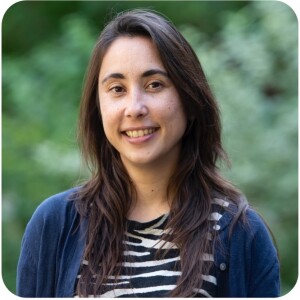
Thursday Nov 09, 2023
The Politics of Music(ology) in the Maghrib
Thursday Nov 09, 2023
Thursday Nov 09, 2023
Episode 172: The Politics of Music(ology) in the Maghrib
In this episode, historian Liz Matsushita discusses the ideas, institutions, and technologies that informed the study and categorization of different North African music genres during the colonial and independence periods. What would have been considered music? Who was interested in studying North African musical genres and why? Matsushita describes how concepts of modernity, authenticity, and race shaped musicology and musical practice across Maghrebi societies and considers the extent to which these concepts still hold sway today.
Liz Matsushita is a historian of modern North Africa and is currently Visiting Assistant Professor of History and Humanities at Reed College in Portland, Oregon. She previously taught at Claremont McKenna College and earned her PhD from the University of Illinois at Urbana-Champaign in 2021. Her research examines the history of music and musicology in colonial and post-colonial Morocco, Algeria, and Tunisia, and the ways in which music served as a political idiom that shaped French and Maghrebi understandings of race and power.
This episode was recorded via Zoom on the 10th of May, 2023 by the Centre d'Études Maghrébines à Tunis (CEMAT)
We thank our friend Ignacio Villalón, AIMS contemporary art follow for his guitar performance for the introduction and conclusion of this podcast.
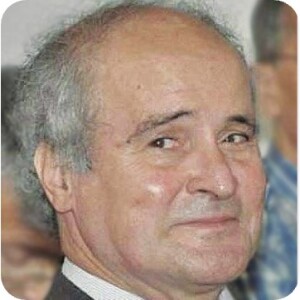
Thursday Oct 26, 2023
Les deux Guerres mondiales et l’Algérie
Thursday Oct 26, 2023
Thursday Oct 26, 2023
Episode 171: Les deux guerres mondiales et l'Algérie
Dans ce podcast, Pr. Hassan Remaoun, sociologue et historien, Professeur retraité de l’Université d’Oran 2 et chercheur associé au CRASC, intervient sur les rapports entretenus entre le local et l’universel à travers une communication intitulée « Les deux Guerres mondiales et l'Algérie ».
Par le biais de la colonisation, au travers de la restructuration économique induite, la société algérienne va dès le XIXèmesiècle se retrouver largement arrimée au capitalisme désormais étendu à l’échelle mondiale, avec cependant ses spécificités dans le Sud de la planète cantonné dans le statut de périphérie. Le local et l’universel s’entremêlaient donc largement au sein d’une formation sociale à caractéristiques d’économie agraire, mais que la contrainte armée et les lois foncières et autres imposées par la puissance dominatrice poussaient de plus en plus vers la forme coloniale de production et d’exportation et au détriment de l’agriculture vivrière plus tournée vers les besoins de la population locale.
La première moitié du XXème siècle sera caractérisée par un coup d’accélérateur donné à ce processus global qui paradoxalement débouchera sur l’émergence du Mouvement national puis la proclamation de l’État national en 1962 et les deux Guerres mondiales y auront contribué de façon toute particulière.
Cet épisode a été enregistré le 30 mars 2023 et s’inscrit dans le cadre des Conférences Ramadanesques organisées par l’IDRH et le Centre d'Études Maghrébines en Algérie (CEMA).
Dr. Manssour Kedidir, politologue, a présidé cette rencontre et a modéré le débat.
Nous remercions Dr. Jonathan Glasser, anthropologue culturel au College of William & Mary, pour son istikhbar in sika à l'alto pour l'introduction et la conclusion de ce podcast.
Réalisation et montage: Hayet Yebbous Bensaid, Bibliothécaire / Chargée de la diffusion des activités scientifiques (CEMA).
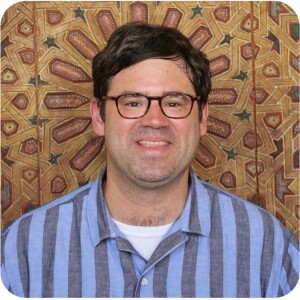
Thursday Oct 19, 2023
The Many Lives of al-Andalus: A Conversation with Eric Calderwood
Thursday Oct 19, 2023
Thursday Oct 19, 2023
Episode 170: The Many Lives of al-Andalus: A Conversation with Eric Calderwood
In this episode, Eric Calderwood, an associate professor of comparative literature at the University of Illinois, joins Jen Rasamimanana, the director of the Tangier Legation Institute for Moroccan Studies, for a discussion of his new book, On Earth or in Poems: The Many Lives of al-Andalus, published by Harvard University Press in May 2023. In the discussion, Calderwood gives an overview of the book’s main ideas and structure and describes the inspiration behind the book’s title. As Calderwood explains, the question that drives his book is: What does al-Andalus do? That is, how has the memory of al-Andalus (Muslim Iberia) shaped cultural and political debates around the world? In this conversation, Calderwood places particular emphasis on the role that al-Andalus has played in debates about ethnicity, race, gender, and nation in the Middle East, North Africa, and Europe. He asks, for example, why did the Spanish rapper Khaled assert, “Al-Andalus is my race”? Or why did the Palestinian poet Mahmud Darwish call Palestine “the Andalus of the possible”? What, in short, has thinking about al-Andalus made possible for writers, artists, and their audiences in the Mediterranean region and beyond? Pursuing these questions, Calderwood surveys some of the case studies from his book and explains their relevance to scholars and readers in the fields of North African and Mediterranean studies. At the end of the conversation, Calderwood briefly discusses a new research project on the history of multilingual art forms in the Mediterranean region.
Eric Calderwood is an Associate Professor of Comparative Literature at the University of Illinois at Urbana-Champaign, where he also holds faculty appointments in the Department of Spanish and Portuguese, the Department of History, the Center for South Asian and Middle Eastern Studies, the Program in Medieval Studies, the Program in Jewish Culture and Society, the Unit for Criticism and Interpretive Theory, the European Union Center, and the Center for African Studies. His first book, Colonial al-Andalus: Spain and the Making of Modern Moroccan Culture, was published by the Belknap Press of Harvard University Press in 2018. It has been translated into Spanish and Arabic and has won several awards, including the 2019 L. Carl Brown AIMS Book Prize in North African Studies. His second book, On Earth or in Poems: The Many Lives of al-Andalus, was published by Harvard University Press in May 2023. He has also published articles in PMLA, Journal of Spanish Cultural Studies, Journal of North African Studies, Journal of Arabic Literature, and International Journal of Middle East Studies. In addition, he has contributed to public-facing venues like Foreign Policy, McSweeney’s, The American Scholar, NPR, and the BBC.
This episode was recorded on July 14th, 2023 at the Tangier American Legation for Moroccan Studies (TALIM).
Recorded and edited in Tangier, by: Abdelbaar Mounadi Idrissi, Outreach Director, TALIM.
Posted by Hayet Lansari, Librarian, Outreach Coordinator, Content Curator (CEMA).
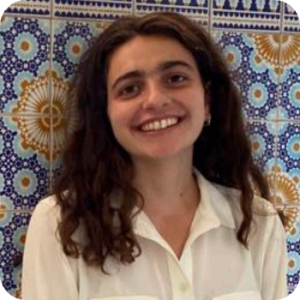
Thursday Oct 05, 2023
Women in the Moroccan Parliament
Thursday Oct 05, 2023
Thursday Oct 05, 2023
Episode 169: Women in the Moroccan Parliament
In response to the February 20 movement, the Moroccan government passed electoral laws that institutionalized and expanded gender quotas at the national and local levels, enabling women to win an unprecedented number of seats in the 2015 and 2016 elections. In this podcast, Delana Sobhani examines how reserved seats in the House of Representatives and communal councils have affected women's substantive representation (i.e., the representation of their policy preferences and priorities). She has worked with Professor Hanane Darhour at Université Ibn Zohr and the National Democratic Institute to investigate whether gender quotas can empower women as visible citizens whose interests are included in their communities' legislative agendas.
Delana Sobhani received her BS in International Political Economy from Georgetown University in 2018. After working as a data analyst for two years, she pursued a Fulbright grant to study the nuanced impacts of gender quotas. Delana has worked with the Ibn Zohr University in Agadir and the National Democratic Institute in Rabat to examine the effects of reserved seats in Moroccan legislatures on women's representation.
This episode was recorded on June 11, 2021 at the Tangier American Legation Institute for Moroccan Studies (TALIM).
